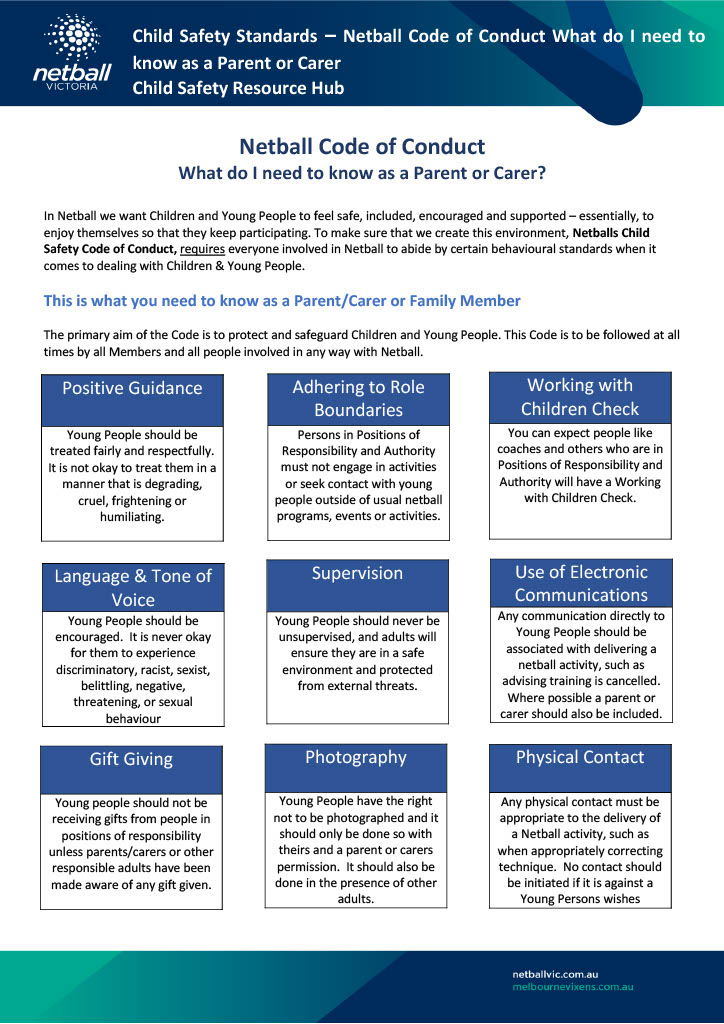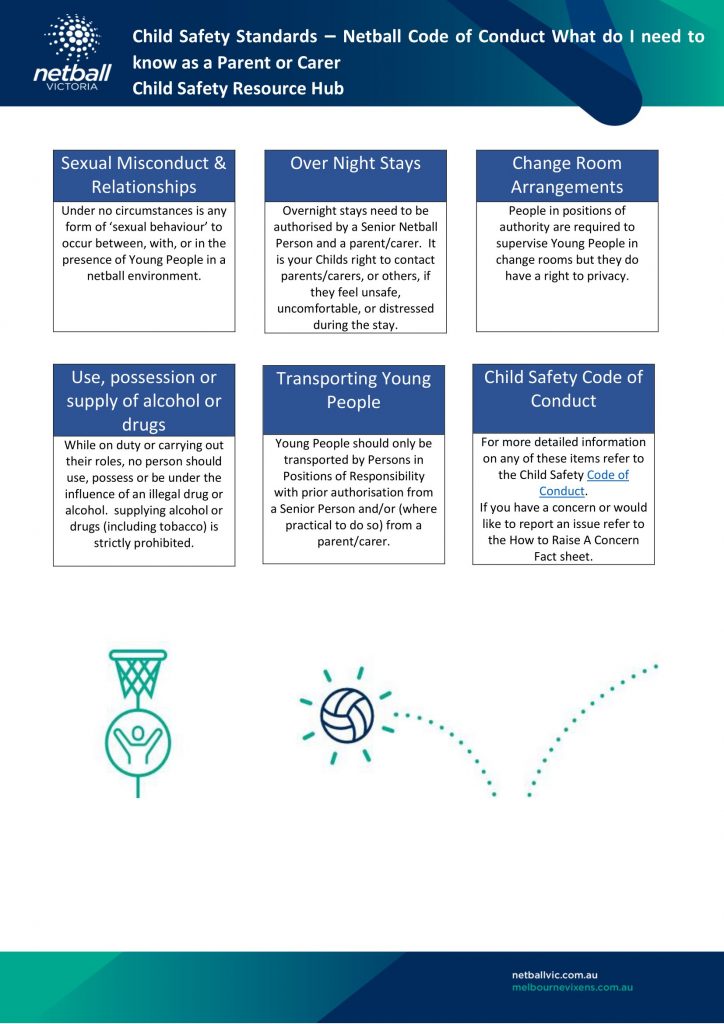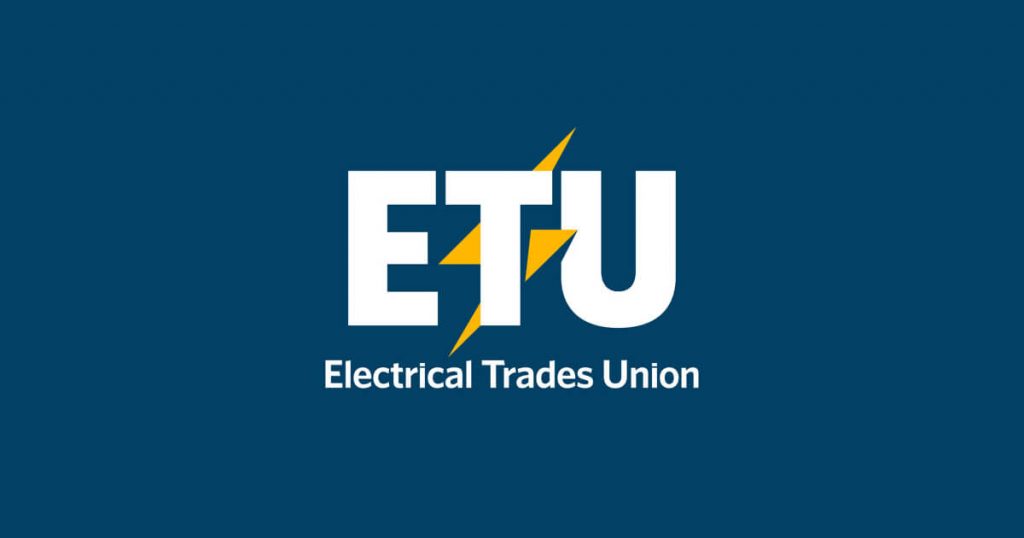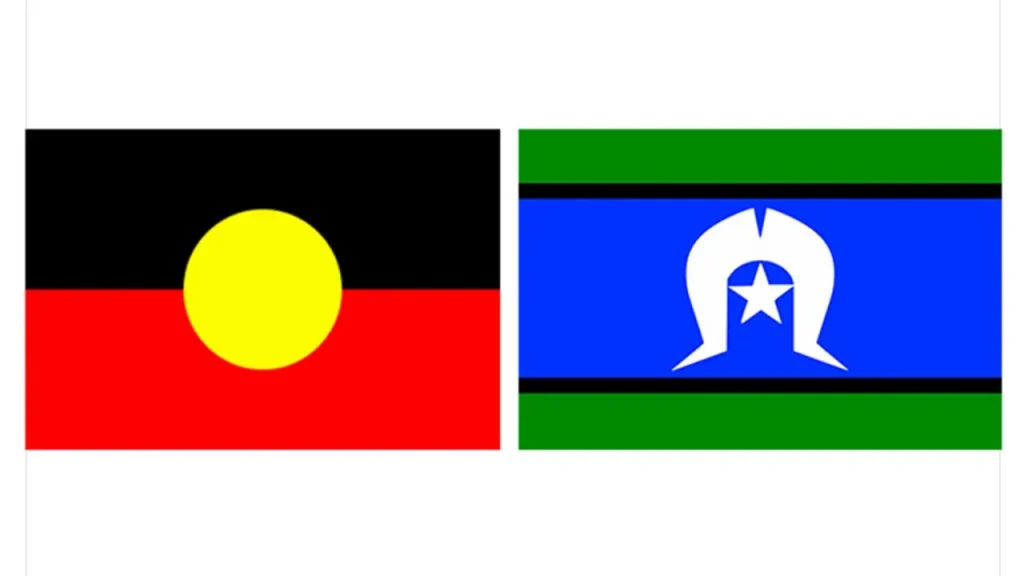Every person in the netball community has a responsibility to understand their role in ensuring the safety and wellbeing of all children and young people in our care. FNC and Netball Victoria are committed to promoting and protecting the rights of children and preventing abuse from occurring by fostering a culture where children feel safe and empowered. We also seek to ensure the cultural safety of First Nations children, children from culturally and/or linguistically diverse backgrounds and children with a disability.
| Standard | Description | Links |
| Fawkner Netball Club | First Nation Inclusion | First Nations Inclusion Policy-Rev1.00 (1) |
| Fawkner Netball Club | Fawkner Netball Club Child Safety and Member Protection Policy | FNC Child Safety and Member Protection Policy |
| Fawkner Netball Club | Fawkner Netball Club Child Safety and Member Protection Procedure | FNC Child Safety and Member Protection Procedure |
| Fawkner Netball Club | Record of complaint | FNC Complaint Record 2023 |
| Standard One: | Organisations establish a culturally safe environment in which the diverse and unique identities and experiences of Aboriginal children and young people are respected and valued. | Fact Sheet link |
| Standard Two: | Child safety and wellbeing is embedded in organisational leadership, governance, and culture. | Fact sheet link Netball Victoria Child Safety Code of Conduct |
| Standard Three | Children and young people are empowered about their rights, participate in decisions affecting them and are taken seriously | Child Safe Safeguarding – A Guide for Teens Fact Sheet link What Should I Expect as a Teen Involved in Netball? Fact Sheet Link |
| Standard Four: | Families and communities are informed, and involved in promoting child safety and wellbeing | Fact sheet link |
| Standard Five: | Equity is upheld and diverse needs respected in policy and practice | Fact Sheet link Safety of children with a disability and Safety of children from culturally and linguistically diverse backgrounds. Fact Sheet Link |
| Standard Six: | People working with children and young people are suitable and supported to reflect child safety and wellbeing values in practice | Fact sheet link |
| Standard Seven: | Processes for complaints and concerns are child focused Child focused complain handling policy which is clear on dealing with different types of complaints/breaches of code of conduct. Complaints are taken seriously and recorded. Child Safe Complaints Register: | Fact Sheet link Fact Sheet link Register link |
| Standard Eight: | Staff and volunteers are equipped with the knowledge, Netball Victoria’s Information Sheets and Resources skills and awareness to keep children and young people safe through ongoing education and training Child Safeguarding Training Tile in the resource hub Ensure all standards are followed as per this guide. | Fact Sheet link Fact Sheet link |
| Standard Nine: | Physical and online environments promote safety and wellbeing while minimising the opportunity for children and young people to be harmed Promoting E-Safety for teenagers. Social Media/Websites (clear on photos, communication. E.g permission to share photos, comments turned off etc.) Group chat groups ‘whats up’ ensuring there is no participants under 18. Physical environment: Adult always supervising junior (u18). Adult to child ratios. | Fact Sheet link Fact Sheet link |
| Standard Ten: | Implementation of the Child Safe Standards is regularly reviewed and improved | Fact Sheet link |
| Standard Eleven: | Policies and procedures document how the Netball Victoria’s Information Sheets and Resources organisation is safe for children and young people | Fact Sheet link |


Proudly Sponsored By














Fawkner Netball Club acknowledges the Wurundjeri Woi-Wurrang people of the Kulin Nation as the Traditional custodians of the lands and waterways in the area now known as Merri-bek. We pay our respects to Elders past, present and future, and also recognise the contribution that Aboriginal and Torres Strait Islander people make to sport.
We also wish to highlight the power of Netball to promote reconciliation, enhance belonging and reduce inequality.
